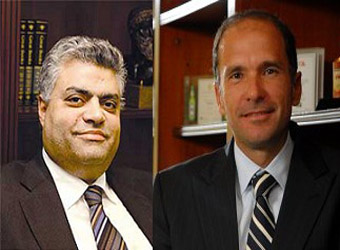For Egypt, the collapse of a deal that would have created the Middle East’s biggest investment bank comes at a particularly bad time.
The North African country is struggling to make ends meet after a revolution ousted autocrat President Hosni Mubarak over two years ago, a move that rattled financial markets and frightened off tourists that provided a major source of foreign exchange. In the absence of securing a loan from the IMF, Egypt has been relying on support from the likes of deep-pocketed Qatar to stay afloat.
The fact that Egyptian regulators failed to approve a tie-up between Qatar’s QInvest and Cairo-based EFG Hermes (HRHO.CA) nearly a year after the deal was originally announced sends a worrying message to investors that Egypt isn’t so welcoming to new business, industry observers say.
“It doesn’t do Egypt any favors which is a shame as there are many good businesses that do relatively well despite the political situation,” said Richard Rollinshaw, a transactions partner at PwC. “It won’t help Egypt’s case (investment) in the short term, it’s just not the right thing for the business community,” he said.
With a large population and abundant resources, the economic potential of Egypt has never been in doubt. Up until the revolution, the country featured prominently on the radar screens of both regional and international investors. But Mubarak’s overthrow and the resulting unrest put the brakes on economic growth and many international firms like French banks Societe Generale and BNP Paribas sold their operations there, while companies such as U.S. private equity giant Carlyle shuttered their Cairo office.
Karim El Solh, the chief executive of private equity firm Gulf Capital, said the inability of the Egyptian financial regulator to make a call on the EFG-QInvest tie-up highlights the country’s now tricky business environment.
“We wouldn’t make an investment today in different sectors, maybe investments related to tourism and anything linked to regulatory approvals,” Mr. El Solh said. “We would rather focus more on consumer-led stories, we feel the growth and returns are there.”
The regional head of a large international investment group said government bureaucracy is just but one of a number of issues stymieing new investment in Egypt.
“The draft of the constitution, parliamentary elections, fears of the devaluation of the pound: these are all event we need to get behind us. We need to get rid of this uncertainty before we can start thinking about Egypt again,” he said. “The business community has not really priced in the fact that the economy and the country are unstable. That’s disconcerting as an investor as you’re taking on more risks but don’t get the better valuations in return.”
For many looking to do business in Egypt, the regulator’s unwillingness to approve the QInvest-EFG Hermes deal may mean any future deals or investment might be put on the back burner for now.
The Wall Street Journal


